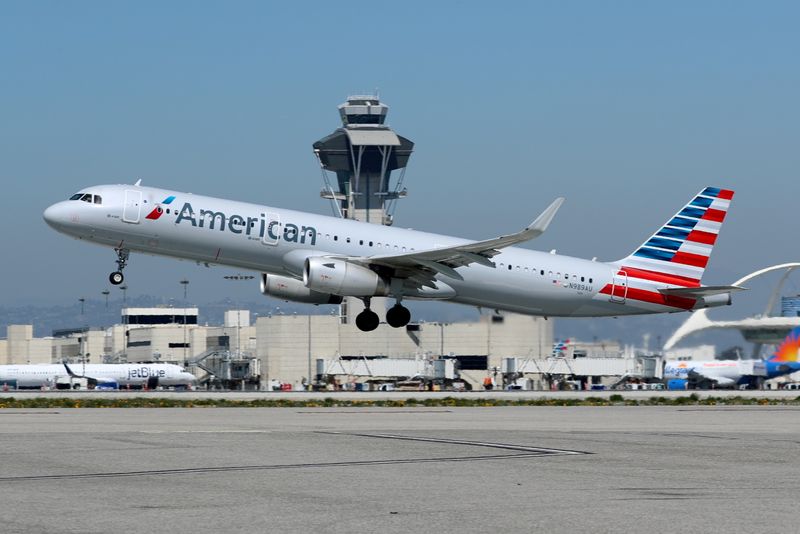WASHINGTON (Reuters) -The Federal Aviation Administration (FAA) said Thursday it was proposing to require flight attendants receive at least 10 hours of rest time between shifts after Congress had directed the action in 2018, according to a document released Thursday.
Airlines for America, a trade group representing major carriers including American Airlines, Delta Air Lines, United Airlines and others, had previously estimated the rules would cost its members $786 million over 10 years for the 66% of U.S. flight attendants its members employ.
Aviation unions told the FAA the majority of U.S. flight attendants now receive 10 hours of rest from airlines and had urged the rule’s quick adoption for safety and security reasons.
The FAA said “flight attendants serve hundreds of millions of passengers on close to 10 million flights annually in the United States” and added “flight attendants perform safety and security functions while on duty in addition to serving customers.”
It cited reports that about the “potential for fatigue to be associated with poor performance of safety and security related tasks,” including in 2017, “a flight attendant reported almost causing the gate agent to deploy a slide” which was attributed to fatigue and other issues.
The FAA estimated the regulation could prompt the industry to hire another 1,042 flight attendants and cost $118 million annually, but said if hiring assumptions were cut in half it would cut estimated costs by over 30%.
After the FAA published an advance notice of the planned rules in 2019, Delta announce it would mandate the 10-hour rest requirement by February 2020.
FAA Adminstrator Steve Dickson is set to testify at a U.S. House Transportation subcommittee hearing Thursday.
House Transportation Committee chairman Peter DeFazio said Wednesday that it was “unacceptable” to delay the FAA adopting the flight attendant rest rule and mandating secondary flight deck barriers on all newly manufactured airliners.
DeFazio said both “have languished in the bureaucratic process despite a clear safety imperative for both.”
Sara Nelson, the president of the Association of Flight Attendants representing 50,000 workers at 17 airlines, said the rule was critical.
“Flight Attendant fatigue is real. COVID has only exacerbated the safety gap with long duty days, short night, and combative conditions on planes,” she said. “Congress mandated 10 hours irreducible rest in October 2018, but the prior administration put the rule on a process to kill it.”
The FAA proposes to make the new flight attendant rest rules final 30 days after it publishes its final rules.
(Reporting by David Shepardson; editing by Jason Neely)



















